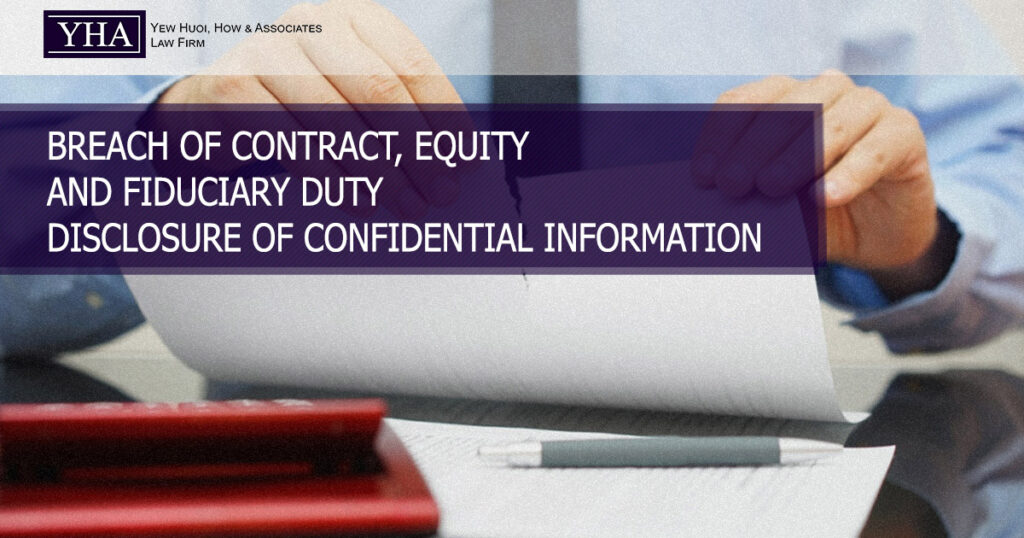Often business owners find themselves vulnerable when dealing with employees who had turned rogue and took confidential information from the company. What are the legal protection against these employees?
What constitutes confidential information?
- It means information which any reasonable employee would recognise as secret to his employer’s business.
- Generally, the following categories are identified as confidential information:
- Specifications and formulas, right material to apply to get certain industrial output, customer’s list, pricing and design;
- List of customer names;
- Technology and trade secrets;
- Schedules of information including marketing pricing and sales information, technical information of a operating system, pricing and cost;
- List of prices negotiated with and quoted by the suppliers, confidential correspondence, purchase order and invoice; and
- Emails, list of customer database, list of affiliates, business plans etc.
What are business owners’ legal rights and cause of action that can be taken against those who took confidential information?
- Confidential information may be protected under the law of contract and common law.
- It is protected under contract when non-disclosure agreement (“NDA”) or confidential information agreement are signed. Most contract of employment contains confidential information protection clause that can be used against employees who breached the confidential clause. The cause of action is breach of contract.
- Equity also protects confidence when information (which is deemed confidential) is received. In another words, the employer has valid cause of action in equity when reasonable recipient would have known that the information disclosed is deemed confidential.
- An employee who disclosed confidential information can also be sued for breach of fiduciary duties.
How are losses determined in a breach of confidential information situation?
- The losses need not be assessed by measuring the loss suffered by the claimant resulting from the breach.
- The court may award “reasonable payment from the gain made by the defendant” from the use of confidential information.
Case in point :
- Karen Yap Chew Ling v Binary Group Services Bhd and another appeal [2023] 4 MLJ
- Wrotham Park Estate Company v Parkside Homes Ltd and others [1974] 2 All ER 321

